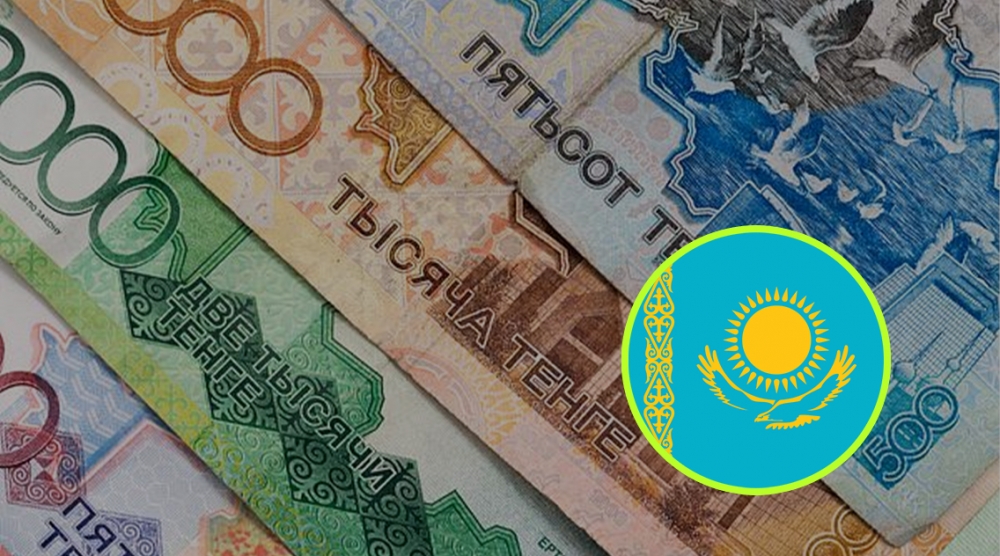The rapid development and growth of the fintech sector in Kazakhstan was highlighted in a report prepared by RISE Research, Kazakhstan National Payment Corporation, Mastercard and Tarlan Payments.
The role of banks in this process is important, especially the absence of old banking systems accelerates the technological transformation. Major banks invest heavily in payment infrastructures, increasing the efficiency and reliability of services.
Active cooperation between banks and government e-systems promotes the integration of various services and the development of digital transformation. Citizens of Kazakhstan can now access government services such as accessing digital documents, renewing driver's licenses, changing car ownership, business registration, paying taxes, registering marriages and obtaining birth certificates through banking applications.
The growth of digital financial services
The growing demand for digital financial services, including mobile banking and e-wallets, is driving the growth of the market. Analysts report an increase in the use of online banking and all fintech-related services and products.
In 2023, the number of active online banking users reached 23.1 million. According to the report, the number of active online banking users will grow 4.6 times between 2019 and 2023 due to technological improvements, regulatory support, high demand, market competition and increased adoption of cashless payments.
The use of online banking is supported by high banking penetration, widespread use of the Internet and a large share of cashless payments. By 2021, 81% of the country's population will have access to banking services, and by 2024, at least 92% will have access to the Internet, and 89% of all transactions will be done digitally.
Increase in non-cash transactions
Cashless transactions in Kazakhstan have grown significantly over the years. This has come about through the combined efforts of the government, financial institutions and the tech-savvy public who have embraced the convenience and security of digital payments.
According to the National Bank of Kazakhstan, by June 1, there were 77.4 million payment cards in circulation. In May 2024, the volume of transactions using payment cards amounted to 15.4 trillion tenge (32.5 billion US dollars), and 1.1 billion transactions were registered. At the same time, compared to the same period of 2023, the number of non-cash transactions increased by 13.3% to 1.1 billion transactions and the volume was 13.3 trillion tenge (28 billion US dollars).
According to the report, between 2021 and 2023, the number of tokenized transactions in Kazakhstan, such as through Apple Pay and Google Pay, has tripled.
Binur Zhalenov, Chairman of the National Payment Corporation of Kazakhstan, said that Kazakhstan is a global leader in the development of non-cash operations.
"In the last five years, the number of cashless transactions has increased more than twenty times and now accounts for 89% of retail turnover. Competition drives the market to improve services and introduce innovations. Equal access and transparent rules of the game to the Digital Financial Infrastructure controlled by the National Payment Corporation of Kazakhstan are fundamental to the development of this competitive environment. We intend to continue supporting and developing innovative solutions to provide consumers with better, more economical and convenient financial services," said Zhalenov.
The future of the fintech market
The report highlights that Kazakhstan's payment infrastructure is undergoing significant transformation due to demographic factors, increasing digital readiness, expanding e-commerce, improved banking access and infrastructure developments such as local payment systems and QR codes.
The younger generation, which is interested in technology and 62% of its population is between the ages of 15-64, is increasingly adopting digital payment methods.
E-commerce accounted for 12.7% of total retail sales in 2023, a significant increase from 1.8% in 2019. Kazakhstan plans to increase this figure to 20% by 2030.
Overall, analysts predict that all fintech-related markets in Kazakhstan will continue to grow with at least a double-digit compound annual growth rate between 2022 and 2027.
According to the report, fintech has become the largest investment category in venture capital deals in Kazakhstan. In 2023, it accounted for 40% of all venture capital funding in the country.
Mastercard's country manager for Kazakhstan and Central Asia, Sanjar Jamalov, noted Kazakhstan's efforts to become a regional leader in fintech development.
"In recent years, we have observed the rapid development of this sector: tokenized payments, fintech solutions for SMEs (small and medium-sized businesses), artificial intelligence and Blockchain projects, investment platforms, digital insurance products and
most of them are actively developing," he said.
The report highlights seven key trends shaping the country's fintech market. These include artificial intelligence, govtech and fintech synergy, digital products and services for SMEs, buy-now-pay-later (BNPL) and central bank digital currencies (CBDC).
However, the founder of RISE Research, Aynur Janturina, said that market participants should not be satisfied with just following the trends, but should keep up with them and set the pace in the market.
"Fintech market participants must not only follow the current trends, but also actively join them, stay ahead and set the pace in the market. Banks should implement BaaS (banking as a service), collaborate with fintech startups, and integrate govtech and artificial intelligence tools into their processes,” Janturina noted.







